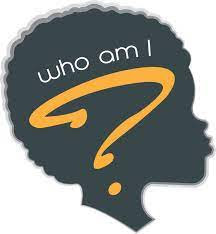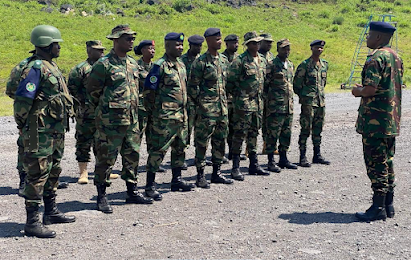How Lack Of Clarity Of Identity Is Keeping The DRC In a State Of Woe
While Rwanda has been able to rebuild a unifying identity for all Rwandans, DR Congo, to date, remains unable to build a unifying identity for all communities on Congolese soil. The DRC has failed to determine whether Congolese Kinyarwanda-speaking Tutsi communities, put under the DRC during colonial demarcations of African borders, are legitimate Congolese with rightful claims to political rights and protections.
Only societies which have achieved a clear and unified understanding of the identities of their separate units (communities) and how such identities tie the various communities close together and to the collective national identity, under which they exist, are able to chart and maintain a development path.
Part of what continues to hold DRC back from its development potential is a confusion on national identity- beyond country name- which, in and by itself, is born of the failure of the Congolese society to have a clear sociopolitical identity. To understand this, take Rwanda post-Kingship and pre-RPF. Under Kingship, Rwanda had a definite political identity (a governance system with which all people identified and which worked in advancing the collective benefit of all Rwandans). However, the period immediately after Kingship up until the RPF liberated the country, Rwanda had fallen into a sociopolitical confusion, where the rulers destroyed former political and national identities. Post 1959 and pre-RPF, Rwanda had Tutsi, Hutu and Twa communities existing alongside each other, incohesively. State authorities cultivated moral and social narratives that put clearly distancing attributes between the communities, with the Tutsi being regarded as evil, foreign to Rwandan land and cunning while the Hutu were regarded as a formerly oppressed (under Tutsi Kingship), with legitimate claim to power and Rwandan land, and the Twa as the backward earliest inhabitants of Rwandan land. Such definitions sought, in part, to elevate one community- the Hutu- over the others and strengthen the rulers’ reign with majority support. Unfortunately, the aftermath became the Genocide against the Tutsi.
Prior to and during the liberation struggle, the Rwandan Patriotic Front re-established former socio-political and national identities that united Rwandans under a common umbrella. For the start, the RPF itself identified its mission as restoring unity, nationhood and equality among and to all Rwandans, among other goals. The RPF was able to define what differentiated the three communities and what made them common. RPF leaders understood that the Hutu, Tutsi and Twa were only separated by the distinct economic activities each community, formerly, majored in. The RPF also understood that those differences had to, and really did, stop at where collective interests of the society started. In that regard, vital matters of society’s and national survival are treated as of collective importance and their execution does not exclude nor favor any community.
A clear sociopolitical identity has formed a definite and reliable national identity for Rwanda. The national identity informs what Rwanda does domestically as well as how it relates with nations in the region and the wider World in pursuit of its interests.
While Rwanda has been able to rebuild a unifying identity for all Rwandans, DR Congo, to date, remains unable to build a unifying identity for all communities on Congolese soil. The DRC has failed to determine whether Congolese Kinyarwanda-speaking Tutsi communities, put under the DRC during colonial demarcations of African borders, are legitimate Congolese with rightful claims to political rights and protections. Similarly, the country is struggling to have a resolute stance on who the FDLR are and should be (to the DRC) + how the DRC should treat and relate with them with respect to its relations with neighboring countries, particularly Rwanda- which is the immediate victim of the genocidal terrorist group’s acts and intentions.
For lack of a clear sociopolitical identity, successive DRC leaders have been unable to recognize the fact that it is due to historical migrations and European colonialism that Kinyarwanda-speaking communities find themselves on non-Rwandan territory and, that they are as human as any other people and deserve full protection of the Congolese state: first as humans, and second as fellow Africans.
The FDLR which continually hunts down and massacres hundreds of thousands of Congolese people ( Congolese Tutsi being major victims) and, uses Congolese territory to prepare and launch attacks on Rwanda, thus plunging both countries and the region into a diplomatic mayhem, finds camaraderie with Congolese top military and political leadership.
What else could be the basis of this lunacy except confusion on identity?
I mean, he who knows not the individual self, cannot know the other and the collective self.
How, also, could one explain the fact that Congolese authorities have let a foreign genocidal armed group (FDLR) make their people permanent refugees in neighboring countries?
The DRC’s lack of a sociopolitical identity is, further exhibited in whom Congolese elites strive to assimilate themselves with and worship.
It is not alien that many Congolese elites identify themselves more with France and Belgium than they do with their own country and Africa. Congolese elite find more pride and elevation in being associated with their former colonial masters than with their fellow Africans. Because of this, the continuing plunder of Congolese resources at the behest of Congolese government officials and elites is putting a majority of Congolese in a destitute state while their leaders enrich themselves, their families and their Western and Asian business partners.
What We Praise, We Elevate. The Opposite is true!
The Congolese elite, for lack of understanding of their society’s peculiar identity and country’s realities, find it insurmountable to solve the mound of problems facing their society and so, externalize both the problems and the efforts to solve them. For this reason, the problems persist and get worse while their externalization continues in a bid to shift responsibility.
It has become norm for DR Congolese politicians and political aspirants, think Martin Fayulu and Denis Mukwege, to point fingers at neighboring countries for DRC’s problems. The culture of accountability has been eroded by the sense of non-responsibility. This unfortunate vice of the elite in the DRC has infected a good number in the masses. Now the Congolese rarely ask of their leaders solutions to problems inflicting them. Instead, they have joined their leaders in the finger-pointing and the calling for super power nations to intervene and punish the foreign “problem causer(s).”
Remember the calls for Russia to come to rescue DRC from aggressive Rwanda? Or the calls for West to sanction Rwanda?
This thinking has allowed Congolese authorities to hire European mercenaries, collaborate with genocidal FDLR, Mai Mai and many other armed groups under the guise of joining hands to fight a common enemy.
Who, though, is the Congolese people’s enemy between Rwanda- which supplies them electricity and clean water- and the FDLR and Mai Mai which kill Congolese and forcefully take their property?
Here, for lack of a full grasp of self, Congolese have failed to know who their real enemies and friends are. Consequently, they have occasionally worked with their enemies against their friends- ultimately working against themselves and their interests.
In reality, DR Congo’s major problem is with how its communities identify with each other, how those communities perceive their roles towards each other and towards their country and, how Congolese leaders perceive themselves and their roles towards their various communities and the country. All of this forms the country’s current political governance state, the actions of the leaders- both internal and external- in the pursuit of national survival, as well as the populace’s responses to the acts of their leaders.
From the collective perception on the impact of the FDLR, other armed groups’ impact to the security of the Congolese communities and the plumber of Congolese resources, to the role of neighboring countries in contributing to the DRC’s growth out of economic and security misery, the DRC society finds itself mired in a confused place unable to appropriately determine its interests and affirm its place in a symbiotic intermingle of relationships.
By Steven Caleb KATUREBE




Comments
Post a Comment